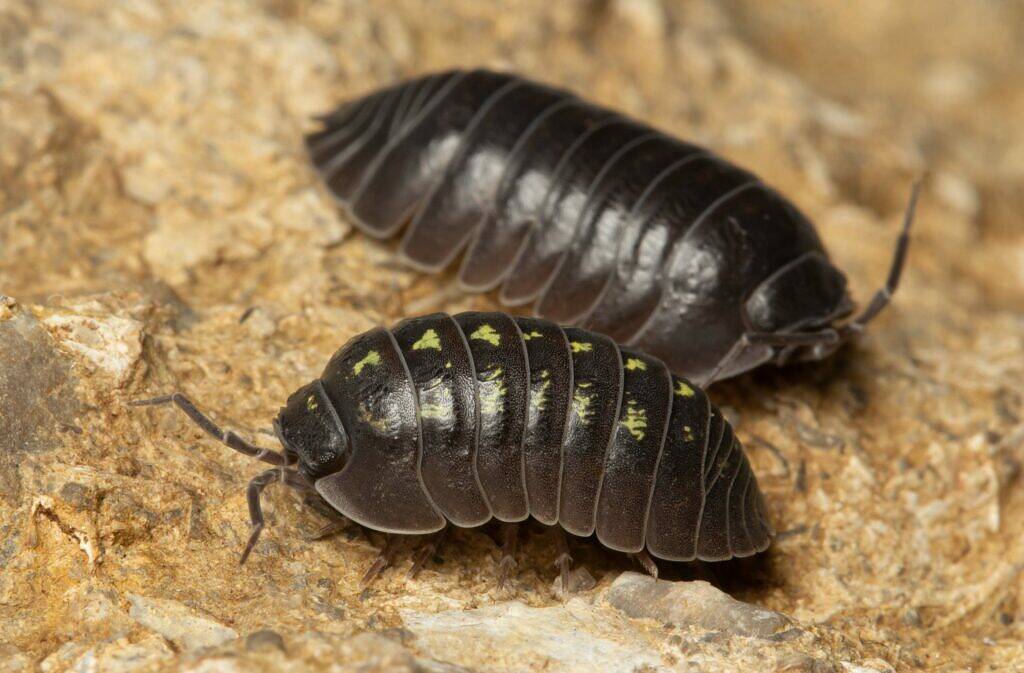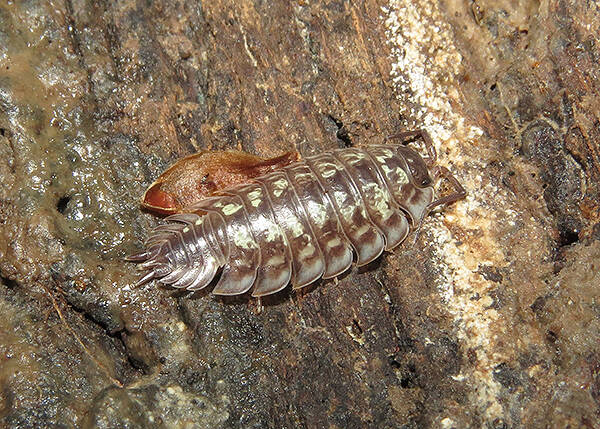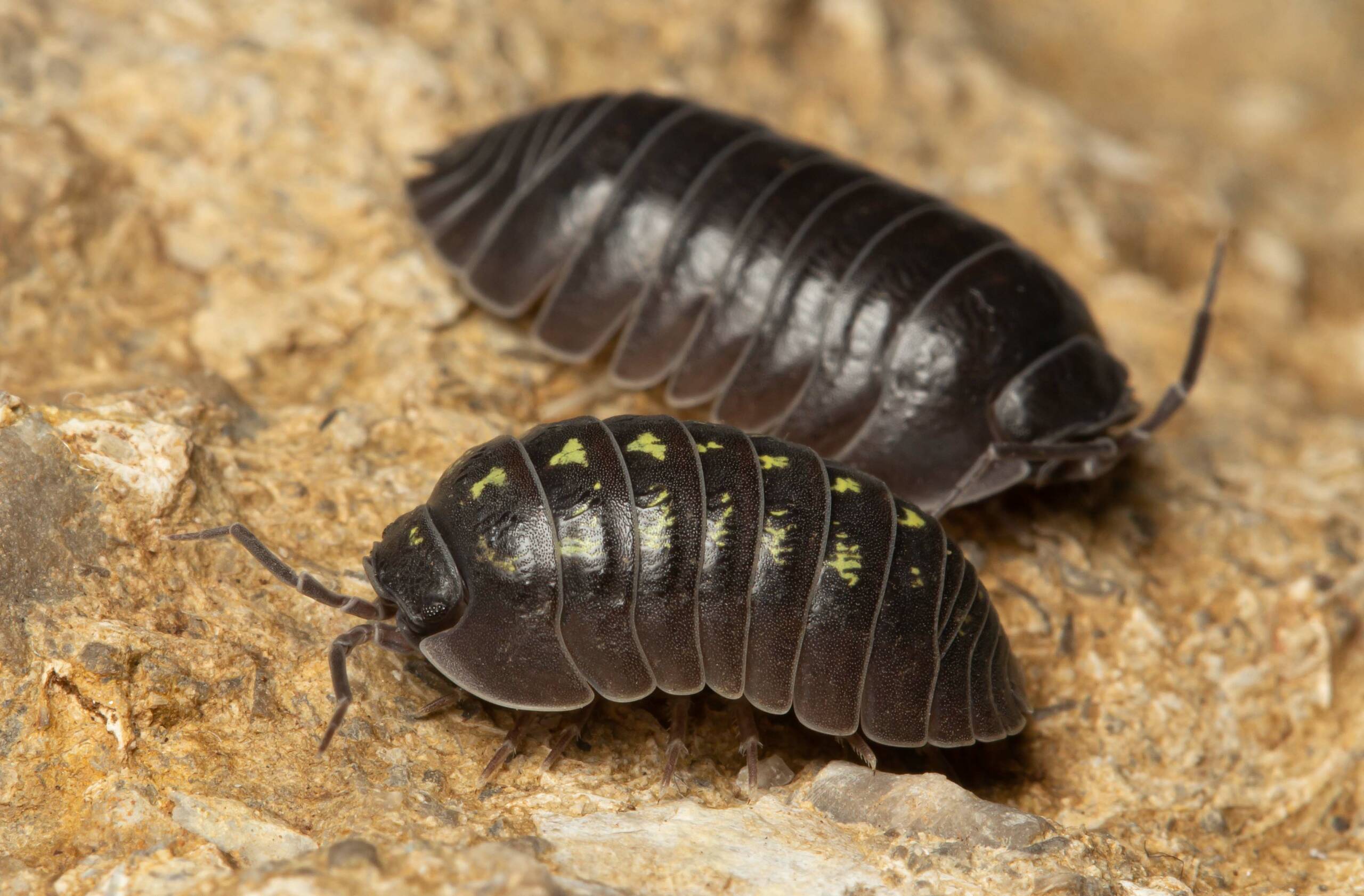Why does the humble woodlouse have so many names? A collection of Devon dialect words recorded by the Bigbury Women’s Institute in the late-1960s lists six terms, more than for any other animal, big or small. And it turns out I am not alone in asking the question. Warren Maguire, a linguistics professor at the University of Edinburgh, has done too and has so far collected more than 350 names for the ubiquitous little isopod.
Prof. Maguire admits to being slightly puzzled why so many of these regional terms have survived at a time when the rich variety of regional dialect has been so much diminished. Intriguingly, these localised woodlouse names seem to have had more staying power in the south, rather than in northern England and Scotland, places where dialect has generally proved more resilient.
Slater is by far the most common name in the north and in Scotland, although it is curiously absent from the Orkneys – where different islands seem to have their own unique colloquial terms – reappearing once again when you get to the Shetlands. We begin to find the richness of informal nomenclature hinted at by the ladies of Bigbury as we move further south, where there are abundant comparisons with pigs, or with names that carry associations with the crustacean’s habit of rolling into a ball, or with their liking for decaying wood, or that contain an affectionate nod towards grandparents.

So to the south-west. Chuggy-pig (or variations such as chucky-pig and chooky-pig) is the most common north Devon name, with isolated records from elsewhere in Devon, and in Cornwall, Dorset and Somerset. Chucky-pig, incidentally, is closest to the dimly remembered woodlouse name from my own childhood, a linguistic echo, perhaps, of my Father’s family’s Somerset origins, where Prof. Maguire and his colleagues have recorded a cluster of clearly related names. Other pig names known from Devon but not necessarily restricted to the county include St Anthony’s-pig, Parson’s-pig (with a single record), pig-louse, tiddy-hog, and fuzzy-pig – the last mentioned very similar to the Devon word for hedgehog, another animal that rolls into a ball when frightened or disturbed.
What of the six Devon dialect terms collected from the Bigbury area in 1969: carbender, carpenter, chizzleball, gammer-sow, sow-pig and granfer grigg?
- There are few references to carbender or chizzleball in the literature, although the former may be a variation of carpenter, linked to the already mentioned association with wood.
- Gammer-sow (or gammer-zow) is recorded as fairly commonplace in a large swathe of south Devon, from Plymouth to Exeter, although Prof. Maguire has found the densest concentration in the west of Cornwall, more usually as grammer-sow.
- Sow-pig crops up in south Devon although it seems to be more widespread in the east of the county.
- Granfer-grigg is the most common of the south Devon names. Prof. Maguire has found variations of the grandfather/grandmother association occurring in many other places, for example daddy-granfer in north Somerset and granny-grey in south Wales.

Why so many names? The beginnings of an answer may lie in the fact that the greatest diversity among the more than 40 species of woodlouse found in the UK and Ireland is in the south, in the same areas with the largest variety of colloquial names. Also found in the south, particularly in south-west England and south Wales, are more of the type that roll themselves into balls when disturbed, in a manner that cannot fail to excite the curiosity of children. The best guess for this southern survival is that children like these roly-poly species, learn the colloquial names from parents or grandparents and, unlike so many other dialect words, remember and use them as they get older. I shall end with a second question: will these names, which spring directly from outdoor fossicking and looking, begin to vanish as children become ever more disconnected from nature?
Thanks to Warren Maguire for his help with this article. I am also indebted to the paper Vernacular Names of Woodlice with Particular Reference to Devon by A.D. Barber (Devonshire Association, 2015). Local words for woodlice can be added to Prof. Maguire’s research here Tweetolectology survey (icge.co.uk)

We called them “daddy granfers” but that was 60 years ago
Hi Paul, thank you for replying, hope you enjoyed the article. There seem to be quite a few names derived from grandfather/grandmother, it’s all very mysterious.